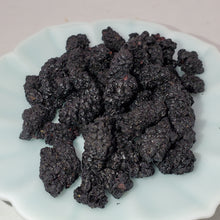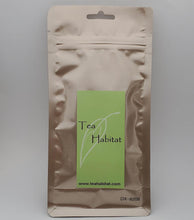These sweet dried mulberries make excellent tea snacks or any time snacks. It can be made as fruit tea, or mulberry wine by simply add dried mulberries in Bai Jiu, sake or vodka.
Mulberries are often consumed dried, similar to raisins. In this form, they contain 70% carbs, 14% fiber, 12% protein, and 3% fat — making them fairly high in protein compared to most berries. Mulberries are rich in many vitamins and minerals, particularly vitamin C and iron. Mulberries may lower cholesterol levels, help prevent fatty liver disease, and improve blood sugar control. They also decrease oxidative stress, which may reduce cancer risk.
Mulberries has long been used in Chinese medicine as early as Tang Dynasty more than 1300 up years ago. In Traditional Chinese Medicine (TCM) food or consumable ingredients can be medicine, herbs can also be consumed as food. In TCM mulberries are used to replenish yin energy in kidney, liver and stomach, better efficient organs is the key to healthier life.
Product of Xinjiang, China




